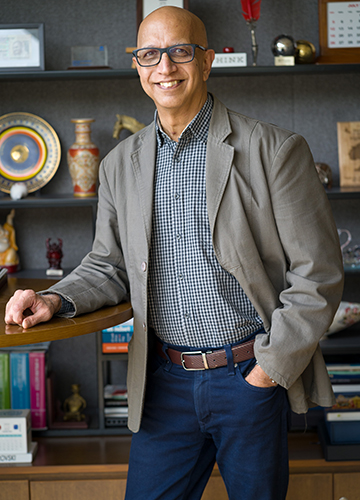How do you see demand panning out in this festive season compared with the pre-pandemic times?
Overall, we are quite bullish about the next two or three years; that is the timeframe we are looking at, not just the upcoming festive season. In many of the categories in which we are playing, the marketshare is very low, whether it is jewellery or eyecare or wearables. On the one hand, there is a kind of explosive growth in the higher income segments I see in the next three years. On the other hand is the low market share. Also, we have the formalising of some of these sectors.
What are Tanishq’s international plans? What are the markets you are exploring?
We are looking predominantly at West Asian markets, Gulf countries like the UAE, Oman, Qatar and Saudi Arabia, where there is a large NRI population. We are also looking at North America, where we have a large NRI and PIO (people of Indian origin) population. The reason for the confidence is that the NRI, PIO community is very affluent and they are celebrating their Indianness.
We have hit the ground running in Dubai, where we launched more than a year ago, and our hypothesis was totally correct. Our conversations with customers in New Jersey and Texas show that there is a lot of interest. There is a lot of income, wealth and a lot of celebrations. So, we are very bullish.
How fast will you scale up internationally?
We are pretty ambitious, very confident and we want to set up a large number of stores. We are talking about 20 stores in the next two to three years.
From watches and jewellery, you have expanded to new segments. What is the overarching theme?
We have certainly considered ourselves as a lifestyle company and that in a sense is underlining the expansion into perfumes, saris, bags, sunglasses and wearables. At the same time, jewellery is not just lifestyle, it is also about culture, value. Eyewear is not so much about lifestyle; it is about seeing better, but it is also about looking good. So, overall, products that make the person feel good, and look good is the broad underpinning.
Also read
- Tata Group becomes first Indian conglomerate to cross Rs 30 lakh crore market cap
- Airbus-Tata consortium to manufacture 40 transport aircraft for IAF in India
- How Tata Group is transforming itself into modern business group
- 'Makes sense to have simplified structure': T.V. Narendran, MD and CEO, Tata Steel
- 'In five years, Tata Motors should have 10 EVs': Shailesh Chandra, MD
- 'Building stronger food and beverage company': Sunil D’Souza, CEO, Tata Consumer Products
In sectors like saris, it is a large unorganised market with strong local brands. Are we seeing a formalisation in some of the sectors?
Our focus and approach has been to enter markets that are not so organised, where customers are underserved, and bring a big difference from an overall customer value proposition point of view and use that to build our business, take a big lead over anybody coming in later. The success of Tanishq is squarely built on that approach. And that is what we intend to do in other areas like saris. We plan to become the first national brand, which offers a fresh customer proposition.
What is e-commerce’s contribution to your overall business?
At the company level, we are at around 12 per cent today, more pronounced in watches. In jewellery, it is more pronounced in CaratLane than in Tanishq. Today, the behaviour of the customer to search, explore, discover and shortlist is growing at a rapid pace from an online point of view. The sale could well happen in the store, depending on the brand.


